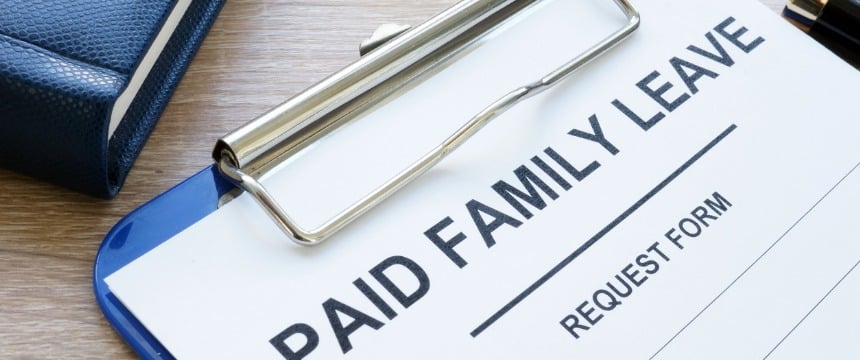Paid Family and Medical Leave Benefits are Available January 1, 2021: What Massachusetts Employers Should Do to Prepare

Massachusetts will soon join the growing list of states mandating paid family and medical leave for employees. Beginning January 1, employees in Massachusetts will be eligible to receive benefits established by the commonwealth’s new Paid Family Medical Leave (“PFML”) law. PFML provides paid leave for individuals facing a health crisis, bonding with a child, or caring for a sick relative. Massachusetts employers should be taking steps now to ensure that they can meet their PFML obligations come the new year. This post provides a brief overview of PFML and action items for employers.
Overview of PFML
Employers can comply with PFML either by: (1) participating in the state plan, which is funded by a state tax; (2) administering a private plan (either self-funded or through a third-party insurer) that must be approved by the state and offer equal or better benefits to employees.
PFML entitles a covered employee to take up to 26 weeks of paid leave for any of the following qualified reasons:
- Up to 20 weeks of paid leave to deal with the employee’s own serious medical condition;
- Up to 12 weeks of paid leave to bond with a child after the child’s birth, adoption, or foster care placement;
- Up to 12 weeks because of a qualifying emergency related to a family member on active duty; and
- Up to 26 weeks to care for a family member who is a covered service member.
The remaining PFML benefits will become available on July 1, 2021, at which time a covered individual will also be entitled to up to 12 weeks of paid leave to care for a family member with a serious health condition.
Leave benefits are funded by employer contributions, which are calculated based on the number of employees. Employers may deduct part of their required contributions from employee wages. For medical leave, employers may not deduct more than 40% of their required contribution from wages. For family leave, they may deduct up to 100%.
An employee taking PFML leave is expected to give their employer at least 30 days’ notice. They should provide the anticipated start date of the leave, anticipated length of the leave, and anticipated date of their return. Of course, employers should be flexible when extenuating circumstances make 30 days’ notice impracticable.
On the flip side, Massachusetts employers are obligated to restore an employee returning to work after medical or family leave to their pre-leave position. This includes job status, pay, benefits, length-of-service credit, and seniority. The taking of PFML also may not affect an employee’s accrual of vacation time, sick leave, bonuses, or advancement. A presumption of retaliation exists for negative employment actions taken within six months of an employee’s leave. Finally, employers must continue providing for employment-related health insurance benefits, regardless of whether an employee is currently on leave.
The Private Plan Option
An employer may apply for an exemption from contributions by demonstrating that it offers leave benefits through a private plan. A business seeking to do so should submit a Request for Exemption through the Massachusetts Department of Revenue’s MassTaxConnect system. A plan will be approved only if it: (i) provides the same or better benefits as those provided by PFML; (ii) does not cost employees more than they would be charged to receive PFML; and (iii) provides for an appeals process with the private plan administrator prior to an appeal through the Department of Family and Medical Leave (the “Department”). An employer denied an exemption by the department may request supplementary review of the decision.
Key Provisions of PFML
- Any employee earning more than $70,000 annually will receive the maximum state benefit of $850/week
- PFML can run concurrently with other statutory leaves, such as the federal Family Medical Leave Act and the Massachusetts Parental Leave Act
- Independent contractors (1099s) can be eligible for PFML if the employer’s workforce is comprised of more than 50% independent workers
- Accrued paid leave (vacation, sick leave, PTO) can be used in lieu of PFML payments, which means that employees who choose to use PTO cannot collect the state PFML benefits for the same period of time
- In contrast, employees can use employer-provided short-term disability and paid family/medical leave benefits and collect the state PFML benefits for the same period of time (which means that these employer benefits can “top up” the state PFML benefits up to the employee’s average weekly wage).
- Employees can take intermittent leave under PFML (employer approval is only required for child-bonding leave).
Action Items for Employers:
- If you have not already done so, register with MassTaxConnect, through which you make contributions and quarterly filings.
- Post the mandatory PFML poster in your workplace if you have not already done so.
- Download the poster here
- Download the poster here
- Revise onboarding documents to provide newly hired employees with notice of PFML benefits.
- Employers are required to give a written explanation of the law within 30 days of an employee’s start date.
- Employers are required to give a written explanation of the law within 30 days of an employee’s start date.
- Review and revise policies to account for PFML and ensure that policies specify that statutory leaves run concurrently.
- Vacation, sick leave, and other PTO policies
- FMLA and parental leave policies
- Military leave policies
- Short-term and long-term disability leave policies
- Update the FMLA benefit year to be on a rolling (rather than calendar) basis such that it matches up with the Massachusetts PFML benefit year.
- Determine whether you want to apply for the private plan option.Private plan exemptions can be secured for 2021 until December 31, 2020, even if you have paid into the state fund already.
- If you are using an approved private plan, be sure to retain all reports, information, and records related to that plan for at least three years.
- If you are using an approved private plan, be sure to retain all reports, information, and records related to that plan for at least three years.
- Train Human Resources employees about PFML requirements and the interplay with existing leave and PTO policies.
- Educate management about new rights and duties.
- Those with supervisory authority should know that any negative change in employment status taken within six months following an employee’s leave will be presumed retaliatory.
- Those with supervisory authority should know that any negative change in employment status taken within six months following an employee’s leave will be presumed retaliatory.
- Review record-keeping protocols in order to respond promptly to department requests for information.
- Employers are required to respond to a request for wage, earnings, or employment information for an employee within 10 calendar days of the request being sent.
- The department may audit a private plan to ensure it is compliant.
In an upcoming blog post, we will review frequently asked questions from Massachusetts employers as they prepare for January 1, 2021. In the meantime, please reach out to your Foley & Lardner LLP Labor & Employment attorney for assistance with the Massachusetts law, or with paid family and medical leave requirements in any state where you have employees.





